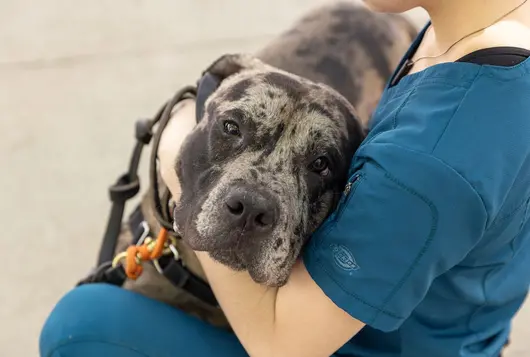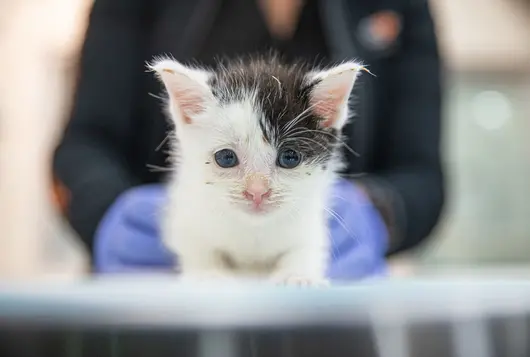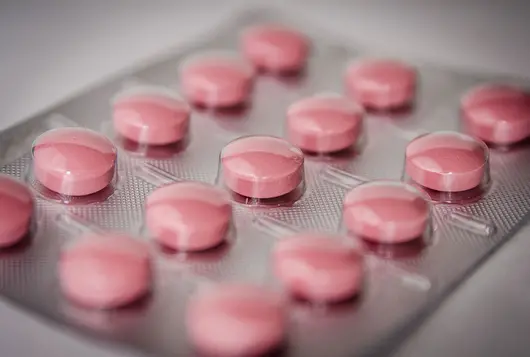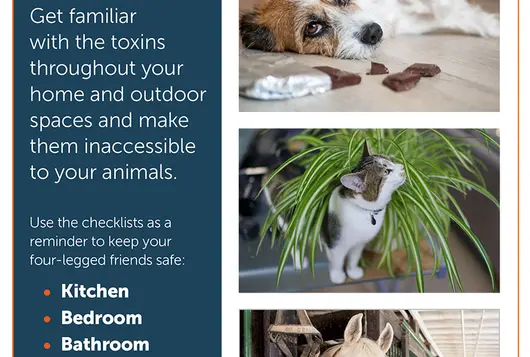Top 5 Holiday Dangers for Pets
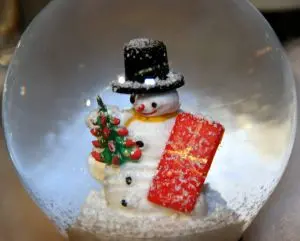
Every holiday season, the ASPCA Animal Poison Control Center fields calls about common holiday situations that put pets at risk. Are you ready for your panicked clients? Bone up on the top five dangers to share with clients or post on your Facebook page. Bonus! Review this RACE-approved recorded webinar to learn even more: ‘Tis The Season: Common Holiday Toxins.
Wrapped Presents
Gifts are a surprising source of toxicities during the holidays. If you are going to wrap any food (especially chocolate), dog treats, or dog toys, keep the items in a safe place and well out of your pet’s reach until they are ready to be opened. Pets have a keen sense of smell and will often unwrap presents early and eat all of the contents.
Snow Globes
Some snow globes contain ethylene glycol, a highly toxic substance to all pets. If a snow globe is broken, either by a person or a pet, the sweet smell can attract a pet to lick it up, leading to a potentially fatal intoxication. Snow globes should be kept out of reach of pets.
Holiday Food
Pets are often not shy about taking food that is left sitting out on counters or tables. Pets should be kept away from food preparation areas or places where food will be left out. A few of the more concerning common food exposures during the holidays are chocolate, bread dough, fruitcake and alcohol.
Medication
There are often a large number of visitors during the holiday season, and pets often get into medications that friends or family have brought with them. These exposures can be prevented with a little advance planning. People who are not used to having pets in the house can often be unaware of how curious they can be. Pets will often investigate suitcases and can get into pill vials or weekly pill minders. It is safer to have the visitors put their medication in a closed cabinet that is not accessible to pets. Be sure that when they take their medications that they do so behind a closed door, such as the bathroom, so that a dropped pill can be found before the pet has a chance to eat it. A prewritten list of the names, milligram strength, and number of pills that visitors have brought is very useful in an emergency situation as well.
Salt
Ice melt, homemade play dough, and salt-dough ornaments (even when dry) can all be a tempting salty treat for pets, but can cause life-threatening imbalances in the electrolytes.
Pet owners should, of course, contact their local veterinary professional or the Animal Poison Control Center if their pets get into any of these substances.
More APCC Resources
Visit us on Facebook for daily APCC news and conversation.
Read case studies, keep up to date on the latest research, and find out more about how APCC can help you by checking out all the resources available in the APCC section on ASPCApro.
Sign up for the monthly APCC newsletter here.
We have lots more on this subject:

